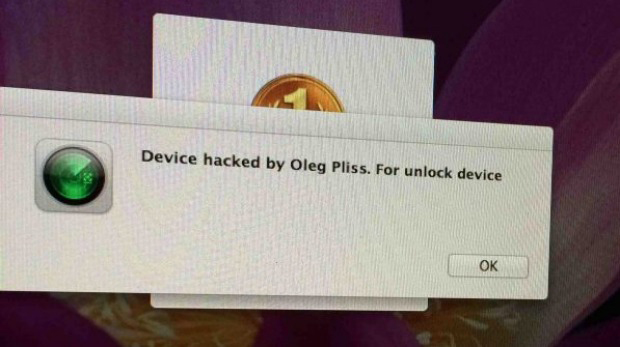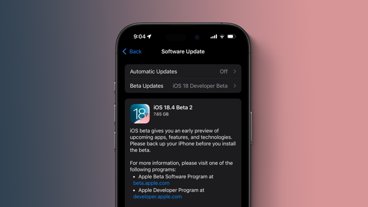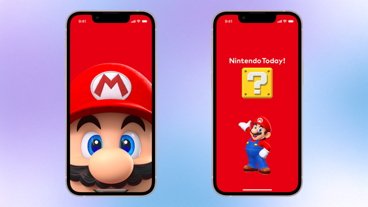Owners of Macs and iOS devices in Australia woke up on Tuesday to find their machines locked by Find My iPhone, with the nefarious hackers responsible demanding payment via PayPal before they return control.
A report from Australia's The Age, as well as multiple posts on Apple's Support Communities forum, confirmed a number of device owners were targeted in what appears to be a string of related "digital hijackings." As of this writing, iPhone, iPad and Mac owners in Queensland, New South Wales, Western Australia, South Australia and Victoria have been affected by the attack.
Those targeted in the attack said their devices alerted them to a "Find My iPhone" or "Find My Mac" remote lock, with many receiving an accompanying message reading "Device hacked by Oleg Pliss." The hackers responsible then directed owners to pay up to $100 for a device unlock.
According to reports, the hackers appear to have gained access to users' iCloud accounts as multiple devices show the same message simultaneously. It is unclear how this feat was accomplished, though password reuse is a likely scenario.
Savvy owners who set an access passcode for their computer or iOS device were able to regain control of their device following receipt of the message. Limited by design, Find My iPhone's functionality only allows users to set a password for devices that don't already have one logged.
Those owners who did not set a passcode prior to the hack were reportedly unable to take back their devices. Apple provides a support page that offers a workaround to the issue, though some users may have to contact customer support to completely solve the problem.
Along with protecting an iDevice with a password, owners can set up two-factor authentication, which sends a confirmation code to a trusted device before any account changes can be made.
 AppleInsider Staff
AppleInsider Staff








 Marko Zivkovic
Marko Zivkovic
 Mike Wuerthele
Mike Wuerthele
 Christine McKee
Christine McKee
 Amber Neely
Amber Neely
 Sponsored Content
Sponsored Content
 Wesley Hilliard
Wesley Hilliard

 William Gallagher
William Gallagher








31 Comments
Gotta use that 2-factor authentication, people!
Wish I could - but it still hasn't been extended to Belgium...
[quote name="SpamSandwich" url="/t/180116/hackers-use-find-my-iphone-to-lockout-ransom-mac-and-ios-device-owners-in-australia#post_2540111"]Gotta use that 2-factor authentication, people![/quote] And stop using the same password for every site. No matter how complex you think your password is if you use it for more than one account you continually add all those accounts to a pool of easily hacked account as soon as your own set of credentials is known. My gut says they had a "secure" password that they used with different services which is how there iCloud accounts were accessible to this criminals.
My gut says they had a "secure" password that they used with different services which is how there iCloud accounts were accessible to this criminals.
I no longer do this - the iCloud Keychain feature, with suggested passwords, in Mavericks/iOS 7 has been a God-send, sorry an Apple-send ;) - even under pain of torture, I have no clue what my passwords are...
Guys, can one of you please tell me in plain old English how to prevent this? My English and understanding of what's written in the article isn't what it's supposed to be. I have a pass code on my phone. Is that sufficient to prevent being hacked? Serious answers or replies please...